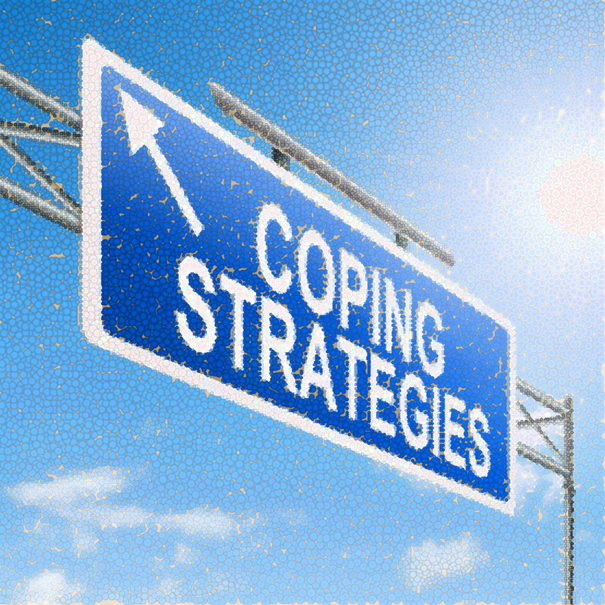In today's fast-paced world, emotional stress has become a common adversary that many individuals face. As we navigate through life’s challenges, it’s crucial to recognize how we cope with emotional stress. Unfortunately, not all coping mechanisms are healthy, and some can lead to detrimental consequences. Whether it’s the pressure from work, personal relationships, or societal expectations, our reactions to stress can significantly impact our mental and physical well-being. The allure of unhealthy coping strategies often lies in their immediate gratification, but they may mask deeper issues that require attention.
Understanding the various unhealthy coping strategies for emotional stress is essential for fostering a healthier mindset and lifestyle. These strategies can provide temporary relief but ultimately contribute to a cycle of dysfunction. From substance abuse to avoidance behaviors, recognizing these patterns is the first step towards meaningful change. As we delve into the complexities of emotional stress and its coping mechanisms, we aim to shed light on how to identify and replace these strategies with healthier alternatives.
In this article, we will explore various unhealthy coping strategies for emotional stress, their implications, and practical ways to replace them with constructive approaches. By doing so, we hope to empower individuals to take control of their emotional health and foster resilience in the face of adversity.
What Are Some Common Unhealthy Coping Strategies for Emotional Stress?
Coping strategies can be classified into healthy and unhealthy methods. Some of the most common unhealthy coping strategies include:
- Substance Abuse: Turning to drugs or alcohol to numb emotional pain.
- Overeating: Using food as a source of comfort during stressful times.
- Avoidance: Ignoring problems or procrastinating rather than addressing them.
- Excessive Spending: Shopping as a form of escapism to alleviate stress.
- Isolation: Withdrawing from friends and family instead of seeking support.
How Does Substance Abuse Impact Emotional Stress?
Substance abuse is often seen as a quick fix for emotional distress. Individuals may turn to alcohol or drugs to escape reality, but this approach can lead to a host of additional problems, including addiction, health issues, and strained relationships. The temporary relief offered by substances can create a dangerous cycle, where the individual becomes dependent on them for emotional regulation.
Is Avoidance a Common Response to Stress?
Avoidance is a prevalent response to stress, where individuals choose to ignore their problems rather than confront them. This strategy may provide immediate relief from anxiety, but it often exacerbates the situation in the long run. Procrastination and neglecting responsibilities can lead to increased stress and feelings of guilt, further perpetuating emotional turmoil.
What Role Does Overeating Play in Coping with Stress?
Many people resort to overeating as a way to cope with emotional stress, finding solace in food. While it can provide a short-term sense of comfort, overeating can lead to long-term health issues, including obesity, diabetes, and heart disease. This unhealthy coping strategy often masks underlying emotions rather than addressing the root causes of distress.
Can Isolation Be a Form of Coping with Emotional Stress?
Isolation may seem like a safe haven during times of emotional distress, but it can intensify feelings of loneliness and despair. When individuals withdraw from social interactions, they miss out on valuable support systems that can help them process their feelings. Instead of facing problems, they create a barrier to healing, leading to further emotional complications.
How Can Excessive Spending Affect Emotional Well-Being?
Turning to shopping as a means to cope with emotional stress can provide a fleeting sense of joy. However, excessive spending often leads to financial strain and guilt, which can worsen emotional stress. The temporary high from purchasing new items fades quickly, leaving individuals in a cycle of emotional emptiness and financial instability.
What Are Some Healthier Alternatives to Unhealthy Coping Strategies for Emotional Stress?
Recognizing unhealthy coping strategies for emotional stress is vital in initiating change. Here are some healthier alternatives:
- Engage in Physical Activity: Exercise is a natural stress reliever that boosts endorphins.
- Practice Mindfulness and Meditation: These techniques help in grounding and centering oneself.
- Seek Support: Talk to friends, family, or professionals to share feelings and gain perspective.
- Explore Creative Outlets: Art, writing, or music can be powerful forms of expression.
- Maintain a Balanced Diet: Nourishing the body can improve mood and energy levels.
How Can One Transition from Unhealthy to Healthy Coping Strategies?
Transitioning from unhealthy coping strategies for emotional stress to healthier methods requires commitment and effort. Here are steps to facilitate this change:
- Identify Triggers: Recognize situations that lead to emotional distress and unhealthy coping.
- Set Realistic Goals: Create attainable objectives for adopting healthier strategies.
- Seek Professional Help: A therapist can guide individuals in finding effective coping mechanisms.
- Practice Self-Compassion: Acknowledge that change takes time and requires patience.
What Resources Are Available for Coping with Emotional Stress?
Several resources can assist individuals in managing emotional stress effectively:
- Therapy: Professional guidance can provide tailored coping strategies.
- Support Groups: Connecting with others facing similar challenges can foster community.
- Books and Online Courses: Educational materials can offer insights and techniques for managing stress.
- Mobile Apps: Mindfulness and meditation apps can aid in practicing relaxation techniques.
Understanding and addressing unhealthy coping strategies for emotional stress is essential for achieving emotional well-being. By recognizing these patterns and replacing them with healthier alternatives, individuals can foster resilience and improve their overall quality of life. The journey towards emotional health is ongoing, but with the right tools and support, it is undoubtedly attainable.




